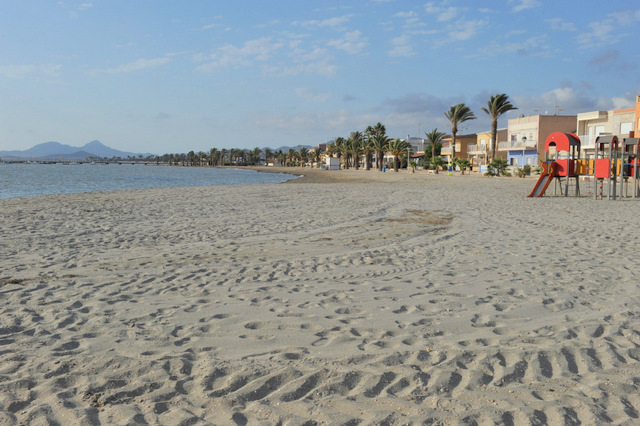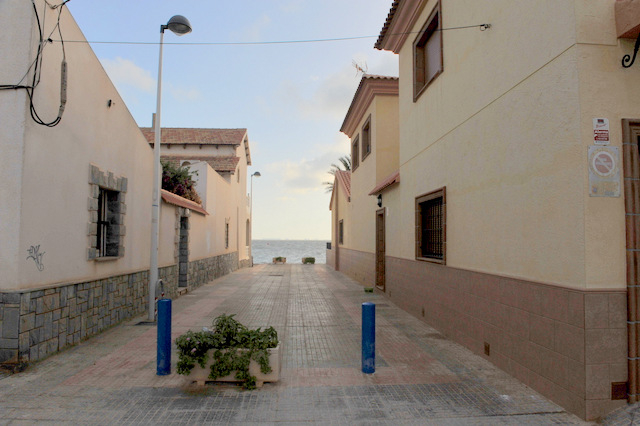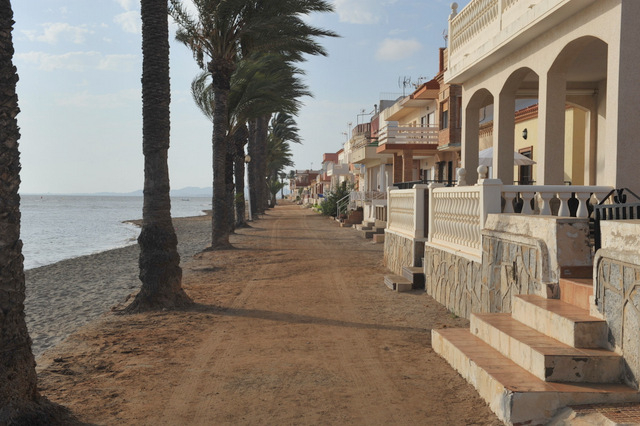

Guidelines for submitting articles to San Pedro del Pinatar Today
Hello, and thank you for choosing San Pedro del Pinatar.Today to publicise your organisation’s info or event.
San Pedro del Pinatar Today is a website set up by Murcia Today specifically for residents of the urbanisation in Southwest Murcia, providing news and information on what’s happening in the local area, which is the largest English-speaking expat area in the Region of Murcia.
When submitting text to be included on San Pedro del Pinatar Today, please abide by the following guidelines so we can upload your article as swiftly as possible:
Send an email to editor@spaintodayonline.com or contact@murciatoday.com
Attach the information in a Word Document or Google Doc
Include all relevant points, including:
Who is the organisation running the event?
Where is it happening?
When?
How much does it cost?
Is it necessary to book beforehand, or can people just show up on the day?
…but try not to exceed 300 words
Also attach a photo to illustrate your article, no more than 100kb

Cartagena beaches: Los Urrutias
Fine sand and calm water at the beach of Los Urrutias
Los Urrutias beach runs for 750 metres right along the front of the urban residential area of the same name, so during peak months is a high occupancy beach with lifeguard service..
This is a Mar Menor beach, enclosed within the protective circle of what is, essentially, Europe's largest saltwater lake, although it's often difficult to think of this as a lake as it is fed by the Mediterranean, and is on the Mediterranean coastline.
The Mar Menor is totally unique, its geographical peculiarities creating some of the best conditions in Spain for those learning watersports, particularly windsurfing and sailing.

Murcia is the warmest mainland region in Spain, and has an average temperature of 18 degrees, which makes it perfect for year-round watersports activity and bathers can enjoy the waters of the Mar Menor for most of the year. The water in the Mar Menor is not tidal and has no currents or waves, so is perfect for family bathing.
It has shallow fringes, which slope gently, and is only 7 metres deep in the centre, so the water temperature is warmer than that of the Mediterranean, particularly around the edges where it is possible to wade out 50 metres from the shore and still only be waist deep.
All of the beaches listed as Mar Menor beaches are inside the circle of the Mar Menor, which covers a surface area of nearly 170 square kilometres, with 70 kilometres of internal coastline, separated from the Mediterranean by a 22km long strip of land (the La Manga Strip as it's often referred to by foreign visitors, or La Manga del Mar Menor), which is connected to the Mediterranean via a canal channel, so sailing boats can sail between the Mar Menor and Mediterranean and the water is saline.
The entire length of the beach is in the built-up area of Los Urrutias, making it easy to find parking spaces outside the months of July and August. At the height of summer, though, the streets are as crowded as the beach itself, and it can be necessary to park some way from the sand.
Properties were originally built right down on the beach, some of which were demolished to comply with the Ley de Costas passed to protect the coast of Spain from over-development. Remains of these lie at the front of part of the paseo, and in 2016, only part of the paseo has been completed: although palm trees line the space between the beach and properties. Promises have been made that it will be completed soon.Be aware that the surface in this section is uneven and could be difficult for disabled beachgoers to navigate.
Further along the beach towards Estrella de Mar the promenade is paved.
Behind the front line of residential properties are the shops, bars, restaurants and other amenities of the village, all of them within easy walking distance of the beach.
In terms of facilities the beach of Los Urrutias is fairly well served. Wooden walkways make access onto the sand easier, a lifeguard is on duty throughout the summer season, there is drinking water available, toilets, footwashes, bins, telephone, children's play area, and beach bars are also in operation throughout the summer.

Those with limited mobility will find wooden walkways a help, there are parking spaces reserved for those with disabilities, specially adapted changing rooms and toilets are available and volunteers are on hand to offer assisted bathing via an adapted bathing seat during peak months.
There is also a local market here on Thursdays during peak summer months.
These days it is easy to reach: for those coming from inland or the north, simply take the exit from the AP-7 motorway at kilometre 794, and follow the RM-54 southbound after crossing El Carmolí, while for those approaching from Cartagena or La Manga the exits at kilometres 1, 3 and 8 of the RM-12 can all be used. The N-332 coastal road runs along the coast.

Safety precautions for bathers
This is a Mar Menor beach and it is advisable to observe the following safety precautions when bathing:
Most of the Mar Menor beaches have very gently sloping shelves, meaning that bathers can walk a considerable distance from the shore and still only be waist high in the water. These shore fringes are also very warm, heating up more than the deeper waters, or the Mediterranean coastline, particularly during the hot summer months.
Many beaches are also protected by netting to exclude jellyfish.
This creates safe bathing areas for families but also leads to a situation which can be life threatening, as the safety of the beaches results in many elderly bathers bathing alone.This in itself is not life threatening, but every year there are unnecessary deaths when bathers suffer a heart attack, stroke, faint or have a dizzy spell of some sort whilst bathing alone, slipping into the water without anybody else being aware that this has happened.
The transition from hot beach to cold water can shock the body, causing dizziness or fainting, so it is advisable to splash the body with water to cool down before wading out into the Mar Menor or Mediterranean.
Even though there are lifeguards, accidents happen and every year there are unnecessary fatalities, the simple rule being if you have a medical condition, are taking medication, or are of advanced age, don´t bathe alone, no matter how shallow and calm the water is.
And for all ages, a red flag means do not bathe, particularly on the Mediterranean beaches.
Click for introduction to the Cartagena beaches
Click for more information about the Cartagena municipality
Further information about Los Urrutias itself can be found in the Los Urrutias local information page.
Other Cartagena Beaches
